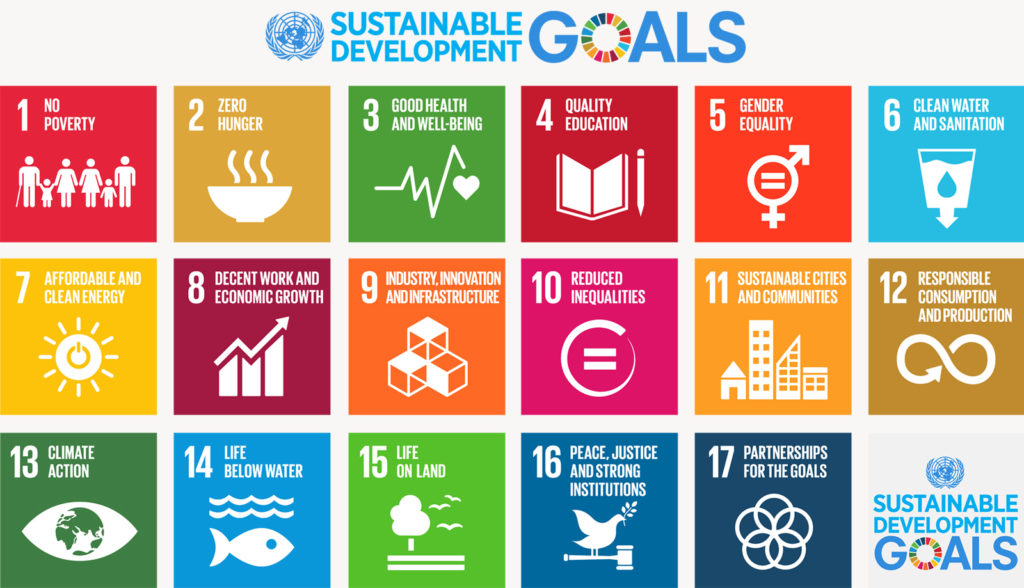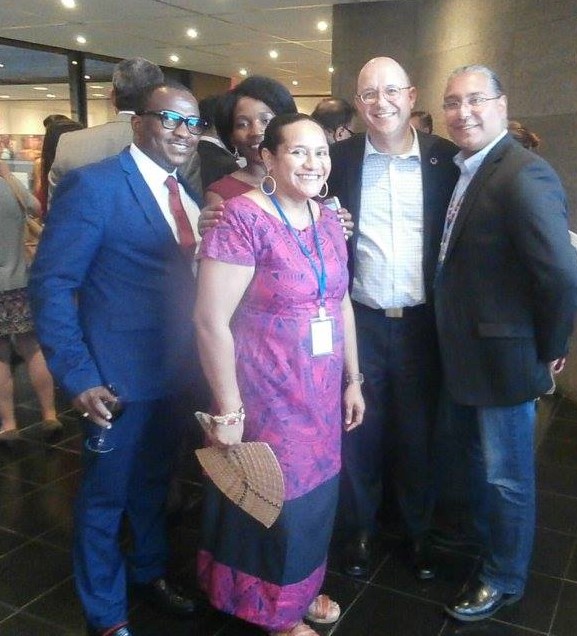SDGs could draw on Pacific ‘gems’

By – Vani Catanasiga, Research and Development Officer
Date: 28 February 2017
Global Goals
What really is the big fuss about the Sustainable Development Goals (SDGs)?
This, and the question of its connection to putting food on the table are probably foremost on the minds of ordinary Pacific islanders when development stakeholders talk SDGs.
At least these are typical queries raised to the Pacific Islands Association of NGOs (PIANGO) since it began its campaign to educate its 24 affiliates, aptly called the national liaison units on this new global agenda in 2016.
At this point, it might be important to stress that these are not necessarily PIANGO-developed goals. These were developed and agreed to by heads of states and governments in 2015 after its attempts for “collective responsibility to uphold the principles of human dignity, equality and equity at the global level” through the Millennium Development Goals, fell short.
Sustainability Goals Underscore Pacific Input
Drawing from the shortcomings of the MDGs, which generally focused on economic growth and social inclusion, the SDGs or otherwise known as Agenda 2030, attempts to address hurdles to Sustainable Development with the additional emphasis on environmental sustainability.

PIANGO officer Alanieta Vakatale and civil society representatives from around the world during a side event on SDGs at the UN’s New York office last year.
Unlike the MDGs, the SDGs require “shared action” which means that these goals can only be achieved by 2030 if implementation is carried out by “all countries and all stakeholders, acting in collaborative partnership.” This not only places the responsibility of its achievements in the hands of our governments but on civil society, private sector, community groups and individuals as well.
With three of the 17 Goals solely dedicated to the protection of the environment and a specific goal on climate change, the region’s role in this global campaign cannot be emphasised enough. The Pacific is after all the global “poster child of climate change” with a few of our leaders recognised as global advocates for communities across the region facing the inevitable loss of their homes, heritage and livelihoods.
The Fijian Prime Minister, Frank Bainimarama’s chairmanship of the United Nation’s biggest climate change meeting in Europe, the 23rd session of the Conference of the Parties (COP 23) to the UN Convention on Climate Change (UNFCCC) in October this year, is a case in point.
Another high level international event and UN Conference that’s SDG-related and is expected to have some focus on the Pacific is the upcoming Oceans Conference. The conference aims to foster the implementation of SDG 14: Conserve and sustainably use the oceans, seas and marine resources for sustainable development.
Even more encouraging is the fact that Fiji’s Speaker of the Parliament, Dr Jiko Luveni is an SDG Champion and has actively advocated on SDG 16 which promotes, peace, justice and strong institutions since 2016. Initial joint action with the Fiji Council of Social Services contributed.
Samoa as a Pacific Example
While the SDG’s 13 (climate), 14 (Oceans), 15 (Terrestrial) are probably the goals that the Pacific may be more visibly engaged with, these are not the only ones on which development stakeholders have concentrated on. Infact, the government of Samoa was amongst the 22 countries that participated in the 2016 UN High-Level Political Forum on Sustainable Development (HLPF) National Voluntary Review session, scrutinising national efforts for the achievement of the 17 goals.
In doing so, Samoa demonstrated the existence of political will as well as Pacific initiative to link existing country mechanisms for sustainable development to emerging global agendas. But there is still room for improvement according to the Samoa Umbrella for Non Governmental Organisations’ Roina Vavatau.
Vavatau represented Samoa civil society at the HLPF Action for Sustainable Development-facilitated side event in New York, US, alongside PIANGO’s Alanieta Vakatale and raised the need a more robust mechanism that fosters meaningful partnerships with private sector and CSOs
“CSOs want to be consulted not just informed after government has decided,” she said at the meeting.
Coordination is Key, Not Capacity
Worries that Pacific societies lack the appropriate systems in place to ensure that attempts to fulfil the goals are met, are misplaced. The SDGs, if approached correctly, would be an opportunity for governments to rediscover the gems inherent in Pacific indigenous cultures and traditions.
Gems like “social safety nets” in indigenous cultures of Pacific people, traditional conservation methods and sustainable approaches to economic development. Tapping on these “gems” are part of a move by Pacific CSOs to rethink and redefine development approaches in the region.
PIANGO executive director, Emele Duituturaga says based on the initial 2016 campaign, once ordinary Pacific islanders understand what the SDG frames, work will no longer focus on the relevance of the goals.
“What we firmly believe as PIANGO is that, it will not be about relevance nor capacity because we have demonstrated that we have existing mechanisms in formal governments as well as traditional governance. It will come down to coordination – our ability to coordinate our implementation and actions on the 17 Goals across sectors.”
Ends
